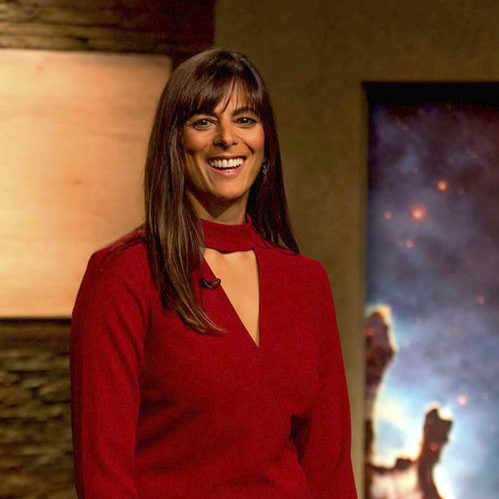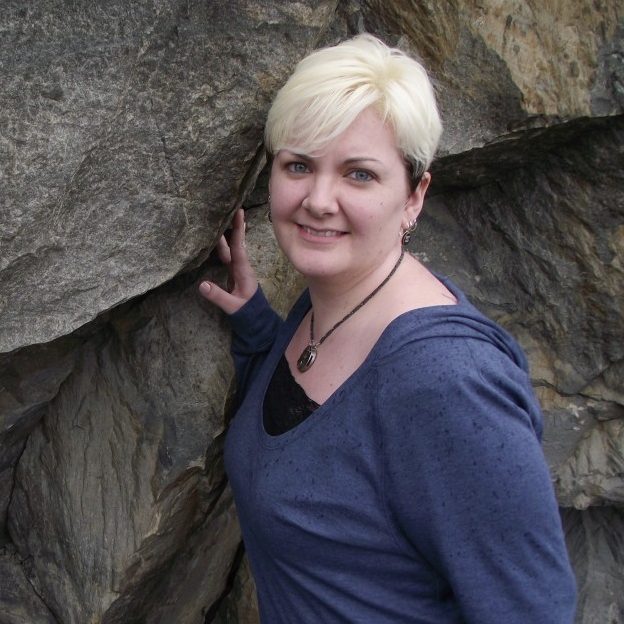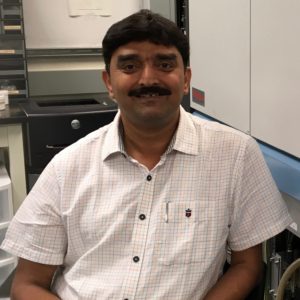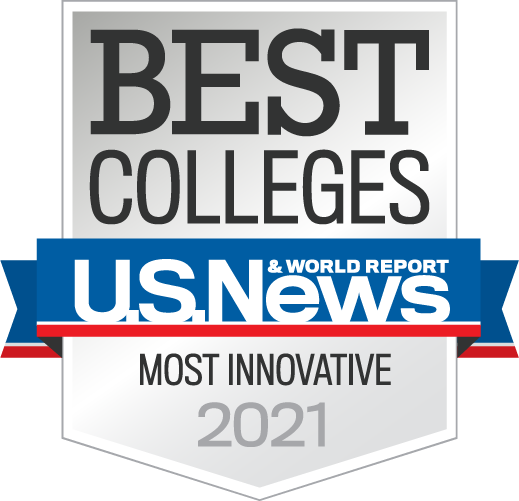
Meenakshi Wadhwa (ASU Regents Professor and Director, School of Earth and Space Exploration) Meenakshi Wadhwa is a planetary scientist and isotope cosmochemist interested in the time scales and processes involved in the formation and evolution of the Solar System and planets. Her research group is known for developing novel methodologies for high precision isotope analyses and for the application of high-resolution chronometers to understand: the time scales of accretion and differentiation of planetesimals and the terrestrial planets; the processes in the solar protoplanetary disk and on planetesimals; and the abundance and origin of water and other volatiles on rocky bodies in the Solar System. She received her doctorate from Washington University in St. Louis (1994) and was a postdoctoral researcher at the University of California at San Diego (1994-1995). She was subsequently Curator in the Department of Geology at the Field Museum in Chicago (1995-2006) before moving to Arizona State University (2006-present) where she is Professor in the School of Earth and Space Exploration. At ASU, she served as director of the Center for Meteorite Studies from 2006 till 2019. She currently serves as director of the School of Earth and Space Exploration (since 2019). She is additionally appointed as a Distinguished Visiting Scientist and Mars Sample Return Principal Scientist at the Jet Propulsion Laboratory. She is a recipient of the J. Lawrence Smith medal of the National Academy of Sciences (2021), Fulbright-Nehru Academic and Professional Excellence Award (2015-2016), the Guggenheim Fellowship (2005-2006), and the Nier Prize of the Meteoritical Society (2000). She was awarded an American Council on Education Fellowship (2018-2019) and became a Fellow of the American Geophysical Union in 2019 and Geochemistry Fellow of the Geochemical Society and the European Association of Geochemistry in 2021. Asteroid 8356 has been named 8356 Wadhwa in recognition of her contributions to meteoritics and planetary science.
Researchers

Michelle Aigner (Cleanroom Manager, Isotope Cosmochemistry and Geochronology Laboratory) Michelle Aigner has worked in geochronology research at ASU for over a decade and has extensive experience in mineral separation, high-pressure HF digestion of geologic materials, quadropole mass spectrometry and laser ablation mass spectrometry. She is also a Compliance Officer with ASU Environmental Health and Safety.

Rebekah Hines (Cleanroom Manager, Isotope Cosmochemistry and Geochronology Laboratory) Rebekah Hines has over 20 years’ experience in analytical geochemistry, including clean chemistry preparation for isotope ratio and isotope dilution analyses, mineral separation, high-pressure and temperature HF digestion of geologic materials, development and implementation of new laboratory techniques, and in situ isotopic analysis via laser ablation multi-collector mass spectrometry (LA-MC-ICPMS), with a particular emphasis on laboratory safety and user training in the Class 1,000 Isotope Cosmochemistry and Geochronology Laboratory. In addition, she takes an active role in educational outreach programming and collection management in ASU’s Buseck Center for Meteorite Studies. Rebekah is also a Compliance Officer with ASU Environmental Health and Safety, and represents the School of Earth and Space Exploration on a number of safety and facilities related committees.

Vinai Rai (Instrumentation Manager, Isotope Cosmochemistry and Geochronology Laboratory) Vinai Rai has extensive experience with a variety of mass spectrometric techniques for addressing cosmochemical and geochemical questions. He has previously worked on such diverse topics as the nitrogen and noble gas systematics in ureilites, mass independent sulfur isotope compositions of meteorites and Antarctic ice cores, Sr-Nd isotopes in oceanic sediments, Mo isotopes in riverine systems, and Si isotopes in achondritic meteorites and water samples. The majority of his research centers around the Thermo Neptune multi-collector mass spectrometer and the ultra-clean Isotope Cosmochemistry and Geochronology Laboratory. Vinai is also a Compliance Officer with ASU Environmental Health and Safety.
Graduate Students

Andrea Distel (PhD Student) Andrea is measuring D/H ratios in lunar rocks and chondritic meteorites in order to understand the variability of the hydrogen isotope composition on the Moon and in our early Solar System.

Rishant Prakash (PhD Candidate) Rishant is analyzing ungrouped achondrite meteorites to better understand their Mg isotope systematics and formational processes.
Undergraduate Students

Jonathan Rabinowitz (School of Earth and Space Exploration) Jonathan is a student worker in the ICGL, focusing on ungrouped achondrite meteorite mineral separation.



